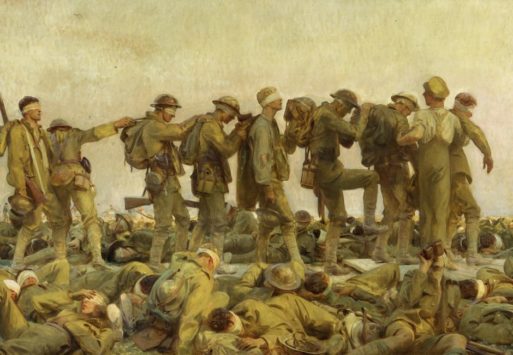
Alfred Edward Housman’s poem “To an Athlete Dying Young” was published in 1896. Housman was a professor of Latin at the University of London and, finally, at Cambridge. His sad, pessimistic poems spoke to a generation on the brink of and in the midst of World War I.
Housman was fascinated by the young men he taught, and many of his poems focused on college students and farm boys, as is apparent in his collection of works, “A Shropshire Lad.” Housman lived in era where homosexuality was rarely acknowledged openly, but several historians hypothesize that he may have had homoerotic feelings.
“To an Athlete Dying Young,” is about a small town’s athletic hero who is killed in a war. England was having several battles with its colonies during this time, and World War I was just around the corner. At first sad, the tone of the poem later changes to cautious optimism:
Smart lad, to slip betimes away
From fields where glory does not stay
And early though the laurel grows
It withers quicker than a rose…
Now you will not swell the rout
Of lads who wore their honors out
Runners who renown outran
And the name died before the man.
Probably most people, at one time or another, have felt that they have outlived their usefulness. Ideally, these people find another purpose and go on. Housman seems to have seen this outcome as an unacceptable compromise. To him, the young man had lived the best years of his life and had nothing to look forward to. He was better off dead.

Credit: hiltrophy.com
Although this thought may sound shocking today, it is important to remember that almost every family in England during that era had lost a loved one to violence or illness. Thus, some people may have found comfort in the thought that their loved one died at an opportune time.
People grieve in many different ways. Some may mourn all the things their loved one will never get a chance to do, while others may celebrate the things they did while they were alive. If your preference is to remember the good times, you may want to read “To an Athlete Dying Young.” Even if the idea of the death of a young healthy man being a good thing disturbs you, the poem provides much food for thought.

 “To An Athlete Dying Young” by A.E. Housman
“To An Athlete Dying Young” by A.E. Housman


 “In Case You Don’t Live Forever” by Ben Platt
“In Case You Don’t Live Forever” by Ben Platt
 Our Monthly Tip: Make an “In Case of Death” File to Ease Loved One’s Grief
Our Monthly Tip: Make an “In Case of Death” File to Ease Loved One’s Grief
 Passing of Beloved Comedian Births a New Comedy Festival
Passing of Beloved Comedian Births a New Comedy Festival














